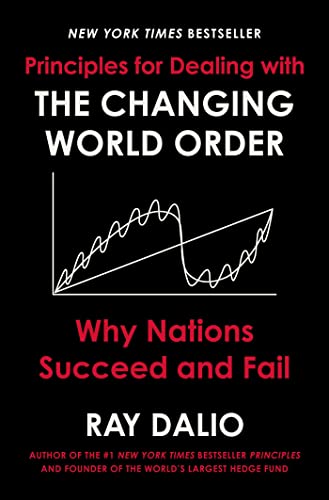Principles for Dealing with the Changing World Order: Why Nations Succeed and Fail
amazon.com
Principles for Dealing with the Changing World Order: Why Nations Succeed and Fail

I think the odds favor intensifying trade/economic wars, technology wars, capital wars, and geopolitical wars as China becomes even more competitive and increasingly goes global in these areas.
The big risk is that when existential irreconcilable differences exist and there is no mutually agreed-upon party or process to adjudicate the conflict, there is a good chance that there will be a fight.
because for the foreseeable future China and the US will be powerful enough to inflict unacceptable harm on each other the prospect of mutually assured destruction should prevent military war, though there almost certainly will be dangerous skirmishes.
The question is whether we Americans can face our challenges honestly and adapt and change to meet them.
very roughly 70 percent through its big cycle. Can it slow or reverse its relative decline? History shows us that reversing a decline is very difficult because it requires undoing so many things that have already been done.
peace is profitable and war is costly.
slowly for a long time and then very quickly.
So, the big risk is not that those big debtors will default; it is that creditors will hold assets that will be devalued—i.e.,
the biggest risk in the long run is the “currency value of money” risk,